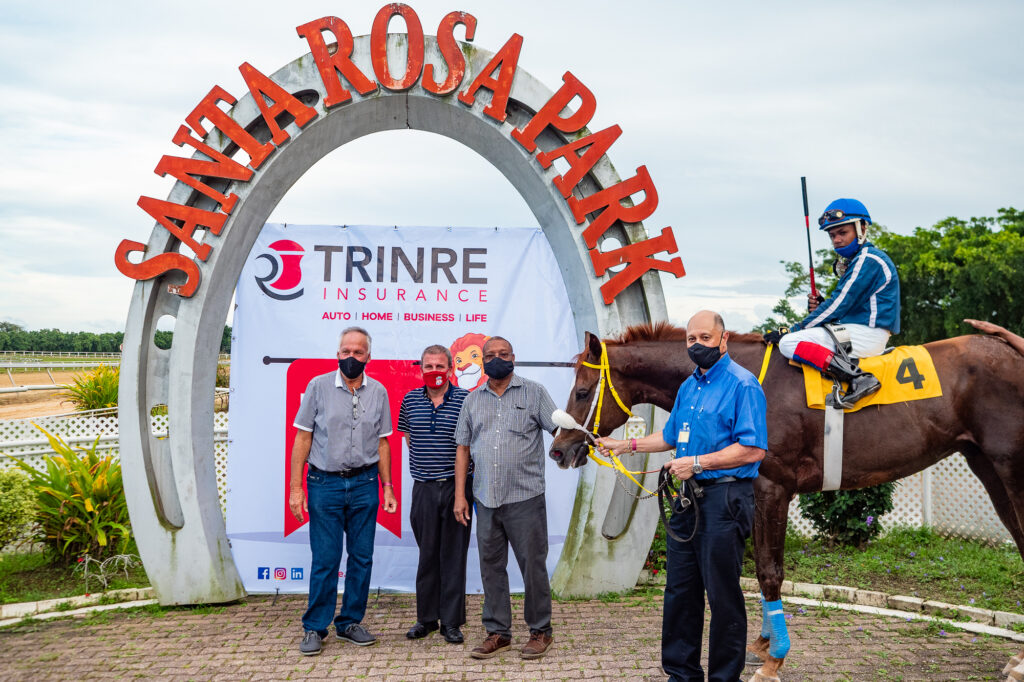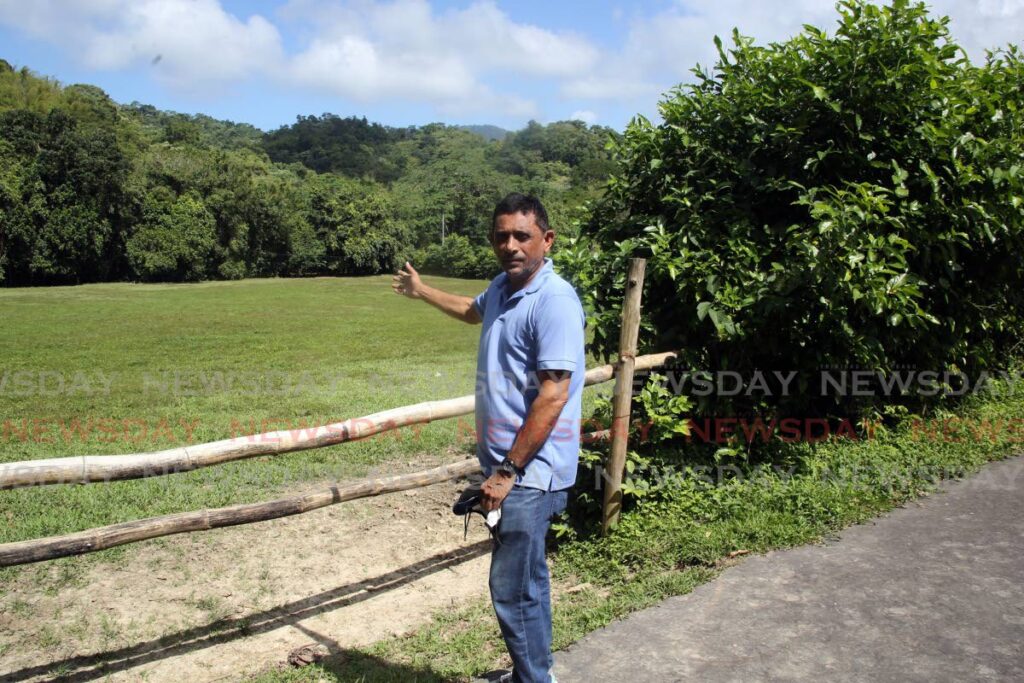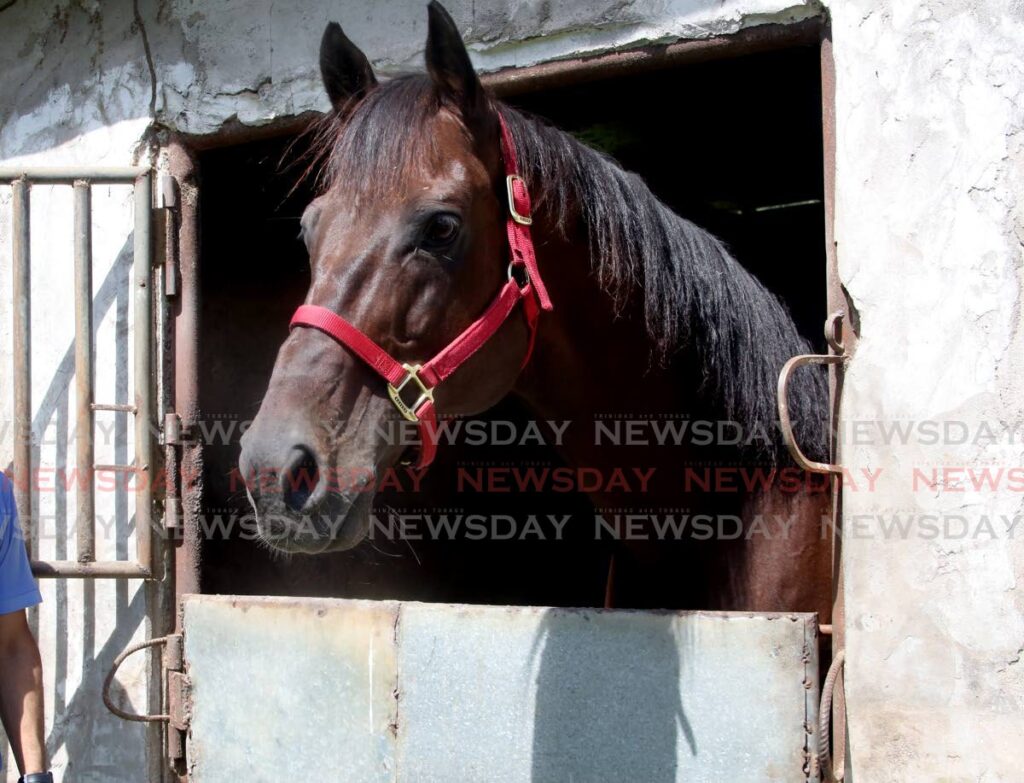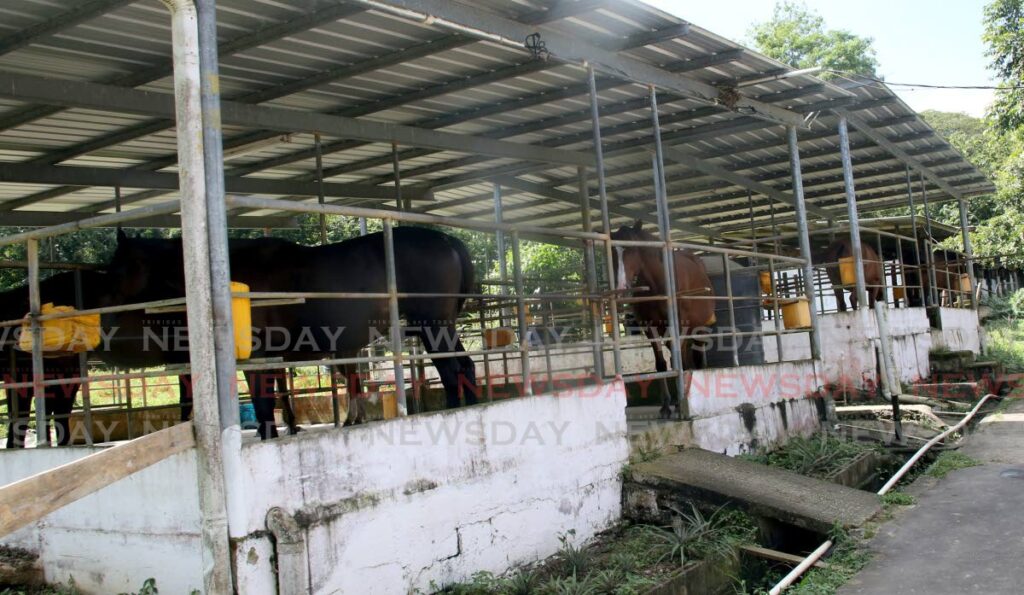Poon Tip not optimistic over future of breeding industry

NEIL POON Tip, one of the leading owners and breeders in the local horseracing fraternity, is not too optimistic over the future of the breeding industry in Trinidad and Tobago.
Poon Tip is the son of Alwin Poon Tip, who founded the Poon Tip Stud Farm, in Santa Cruz, in the 1960s.
Horses sired and foaled at the farm have won the Trinidad Derby 11 times, between 1981 and 2020.

Poon Tip, who is a businessman by profession, is the proprietor/operator of the Poon Tip Stud Farm, but he sees a dim future for the industry, due to the covid19 pandemic as well as decisions made by various arms of Trinidad and Tobago horseracing.
“The breeding industry would be reflected by what’s happening in the racing industry," said Poon Tip. "(While) the racing industry is very much on the downturn, it affects breeding because the thing about breeding is that it’s long-term.
"If somebody wants to get into breeding and they get a mare, you’re not going to take that horse (into racing) until three years’ time. With the uncertainty in racing, nobody wants to make long-term decisions. Unfortunately, I think a lot of the decisions made in the past have led to the decline in the local breeding industry, even prior to the pandemic. The pandemic basically hastened everything and made it a lot worse."

He continued, "A lot of short-term decisions were being made which breeding is not, breeding is long-term. When you made short-term decisions, you affect people (who may think) ‘should I invest in breeding if this is going to be the situation, and what will happen in three years’ time'."
What is one of the decisions made what could have affected the breeding industry in a negative way?
Poon Tip replied, “There are a number of things. For example, at one time, they were giving subsidies to purchasing horses in Jamaica, when there is no subsidy in Trinidad. It’s unheard of in any country to subsidise an imported product ahead of a local product. They were doing that because they said they needed horses to race immediately, but that affects the local breeding industry."
He added, "They were giving travel allowances for horses coming from Jamaica and there was no subsidy for the local breeding industry. Another significant fact, which is probably more significant, is that when the Betting Levy Board’s finances got tight, the first thing they cut was breeders’ entire premiums."
Poon Tip was asked if the breeding industry can return to what it once was, post-pandemic, or if there are more dark days ahead.

He responded, “(The latter) because breeding is a long-term thing and people invest in it. They have to feel like they will be comfortable and, in three years’ time, the racing industry would be vibrant. It’s not a decision people would make very quickly."
He continued, "What has happened now is (that) the number of farms has dwindled. It’s a lot difficult for the farm owners to get out of the breeding industry because they have a huge investment in the land, in the horses, etcetera. The first people to come out of the breeding industry are the people who own single mares, who don’t breed to sell the horses, they breed to race them. If the mare is not in foal, they’ll say ‘I’m not keeping a mare for another year when I’m not even sure they’ll have races for the horse’.
"Those individual mare owners, which are very important to the industry, have gotten out. They’re not only important to the industry but they’re important to the farms, because they bring revenue to the farms. What is happening to most farms now is that the only horses that are there (are) theirs. There are not borders to bring additional income."
The Poon Tip Stud Farm have also suffered tremendously with the decline of quality horses over the years.
“I’m almost down to 50 per cent of what I used to have, and I’m the largest," said Poon Tip. "We used to have between 120 and 150 yearlings a year. Now we’re down to about 40.
"This is what I was saying long ago. The most important product for racing is having horses. There is a feeling that it’s only the local breeding industry that can import horses. That’s a fallacy because importing horses are lot more expensive than locally breeding horses."

He continued, "If you were to get, for example, a horse free in the States, it would cost you $40,000 just to land it. You needed the imported horses from Jamaica and US to supplement but they lost sight that the local breeding industry is the main supplier of racing stock. The decisions they were making (were) sending the breeding industry in the wrong direction."
The 2021 yearling sales, which took place at the Santa Rosa Park, Arima in November, has been described by many in the local horseracing fraternity as one of the worst in memory.
“It was by far, but it was not unexpected because it’s a microcosm of the breeding industry," said Poon Tip. "You’re asking somebody to purchase a yearling now that would not race until a year’s time, and you are not too sure if there will be racing in a year’s time. Somebody investing in a mare, they’re waiting for three years. The only market that you have for horses right now is persons willing to buy a horse if they could race next week or in a month’s time."
What’s his hope for the horseracing future in TT, post-pandemic?
“Covid is not fully to blame," answered Poon Tip. "Covid just magnified the problems and hastened (them), with the shutdown of racing for six months, that type of thing, but we were on a dangerous path heading downwards. It’s difficult to see how it can be revived because the stakes are not attractive for anybody who wants to come into racing. People go into racing to make money but at least you want to feel like if you have an excellent horse, you have a chance, at least, to get a payback.
"You have to improve the stakes to get any movement forward. Always a big problem in the industry is the stakeholders could never get on the same page, whether it’s the trainers, the owners, the Betting Levy Board, the TTRA, everybody over the years can’t get on the same page, understanding what is needed to move forward."


Comments
"Poon Tip not optimistic over future of breeding industry"